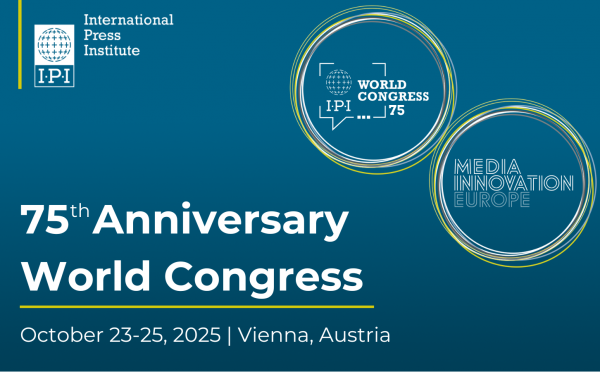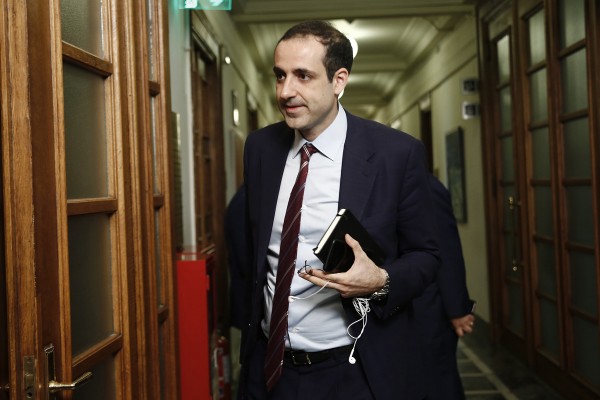The IPI World Congress 2012 opened in Port of Spain this morning with a chilling press freedom report: This year is shaping up to be the deadliest year for journalists since IPI began keeping records 15 years ago, IPI Executive Director Alison Bethel McKenzie said in her annual Director’s Report, which reviews press freedom developments. A total of 72 journalists have already lost their lives in 2012, including 20 reporters and citizen journalists who died covering the conflict in Syria.
Journalists and media executives from the around the globe will meet at the Hyatt Regency hotel in Port of Spain from June 24 to June 26, 2012, to discuss global press freedom challenges and the future of the news business.
War, organised crime and pervasive corruption create a deadly climate for journalists in many countries, but the global media is faced with other challenges that also threaten press freedom and are forcing newsmakers to reconsider how they operate.
That is why this year’s conference, which is hosted by IPI in association with the Association of Caribbean Media Workers (ACMW), is built around the theme: “Media in a Challenging World: A 360 Degree Perspective”. For the next three days, delegates will attend sessions designed to address how today’s political, economic and technological challenges affect the jobs of journalists.
As Wesley Gibbings, President of the ACMW, noted in his opening remarks, this is a special time for the news media. Major media are scrambling to keep abreast of changes in the way people define and consume news. Thus, as Gibbings pointed out, it is the task of media workers to now reassemble the “shards” of the media business and make something stronger.
Dawn Thomas, CEO of One Caribbean Media Limited (OCM) and a member of the IPI Executive Board, looked forward to discussions that will “advance understanding and clarify options” to the ends of “securing press freedom” and “sustaining media endeavors” around the world.
Trinidad President George Maxwell Richards, in his keynote speech, called on journalists to “continue to develop the service you are called to offer” and to come away from the conference with clear results. The President called on journalists to remember the words of one of IPI’s founding members, former Sunday editor of The New York Times Lester Markel, who said: “We should strive to correct the distortions and dispel the fogs that cloud the relations among countries. We should do our utmost toward that end – for our own sakes, for the sakes of our nations, for the sake of the world.”
With this in mind, the President urged the media to consider that there may be a similarity between the roles of diplomats and journalists, though the processes they use may be different. He said that although journalists may believe the “popular myth” that diplomats are “paid to lie”, while they “must give the facts as they are, with no cover ups”, they shouldn’t forget the influence that media have on world affairs, and act accordingly.
President Richards said that perhaps it is time for some “internationally recognised immunity to be agreed, such as that afforded agencies such as the Red Cross, so that the risk to journalists may be minimised if not eradicated”.
This year’s IPI World Congress is a good place to take these discussions and decisions a step forward. Indeed action will need to be taken on many levels and across many regions if the safety of journalists is to be ensured, press freedom upheld, and the future of news media secured.
As the President noted: “Journalism is no walk in the park.”


